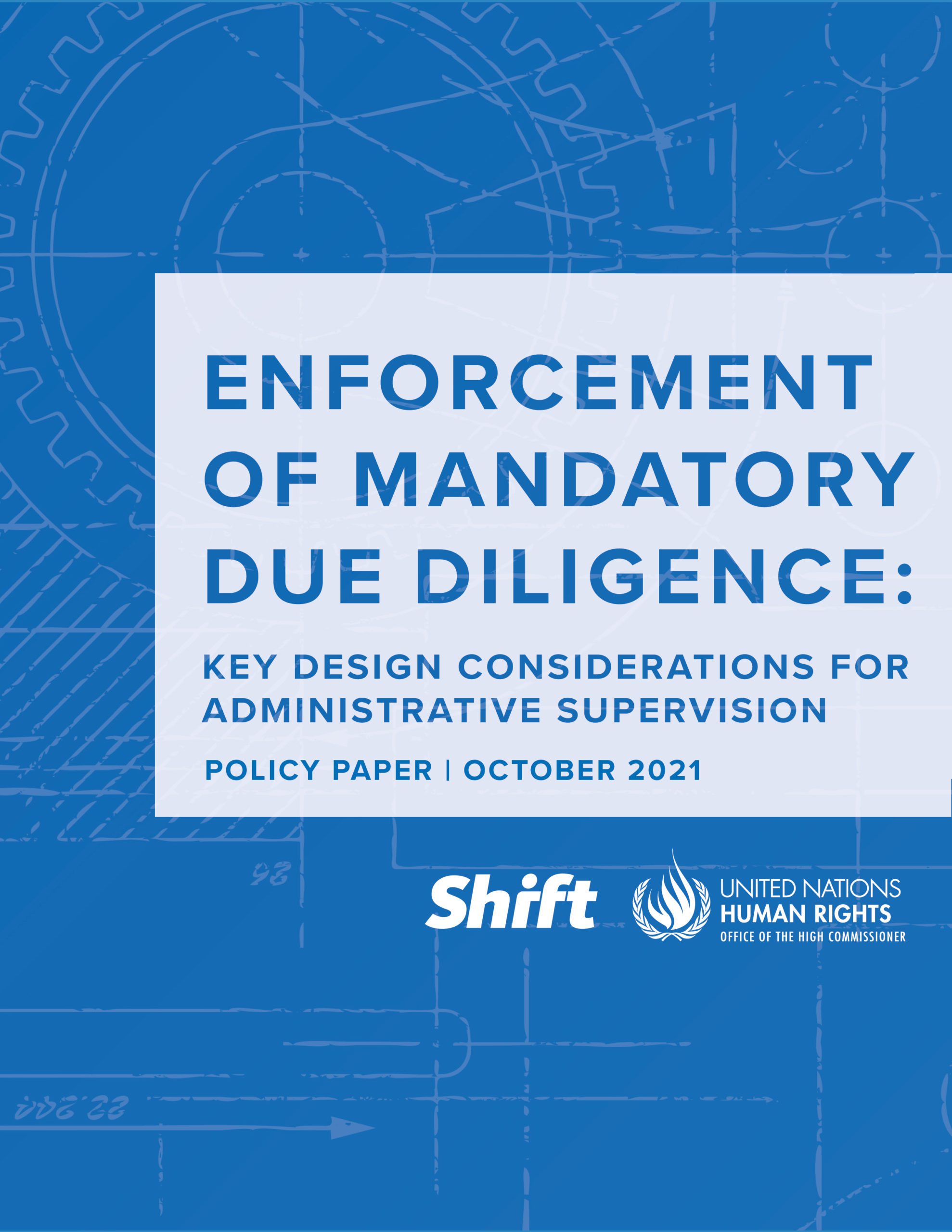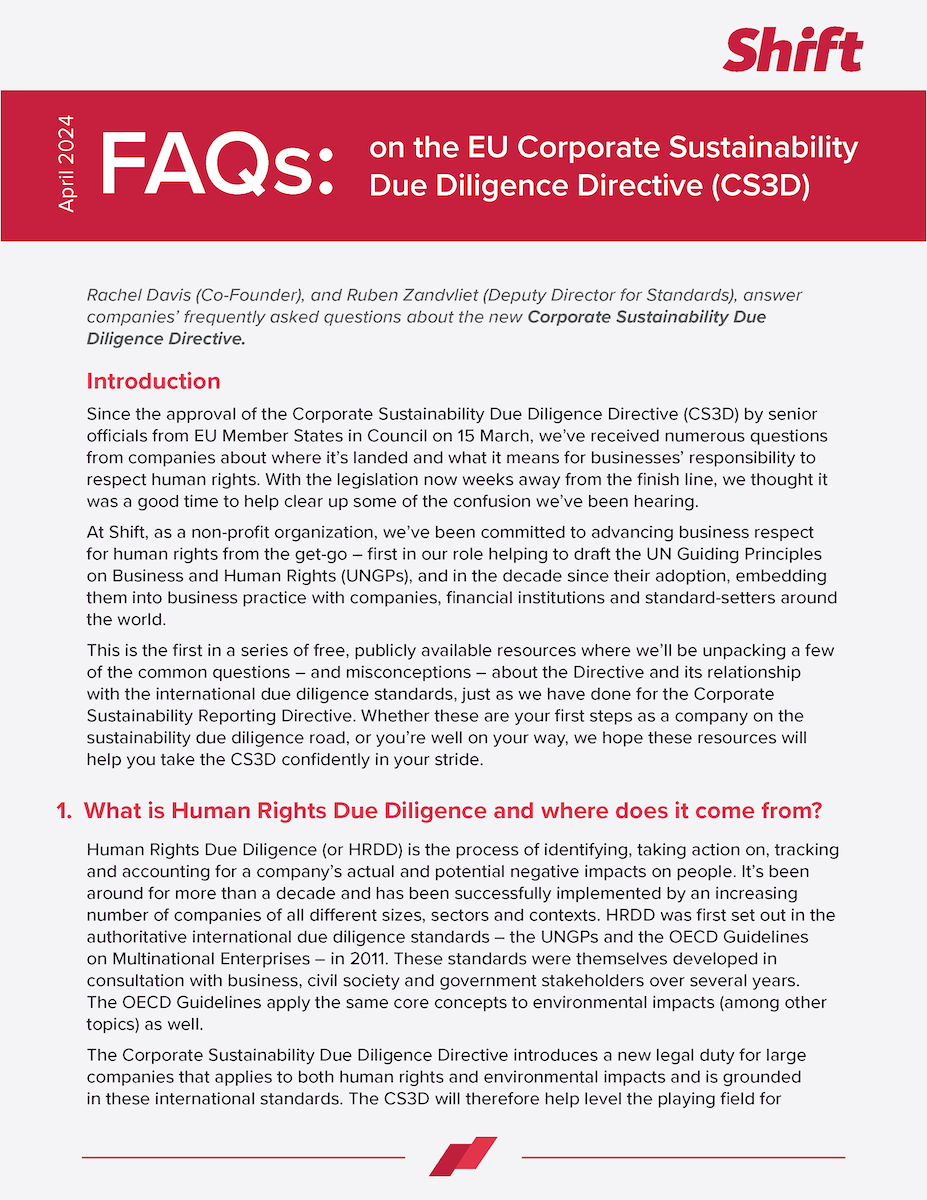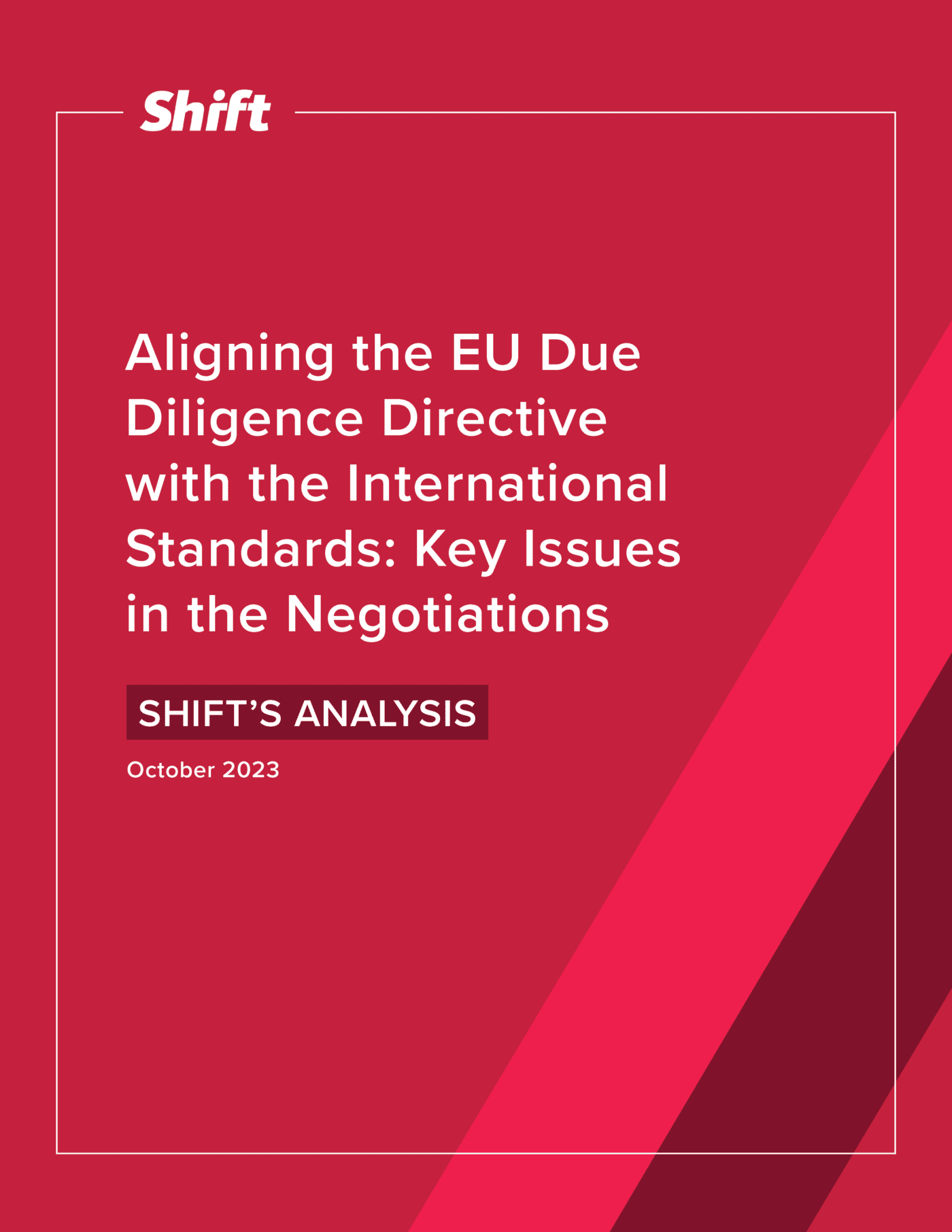As the move towards mandatory human rights and environmental due diligence (HREDD) measures gathers pace in Europe, it is timely to look ahead to how accountability for new corporate duties may be enforced. A wide range of stakeholders are interested in how to ensure that these new measures have their intended result: that is, that they lead to better outcomes for people and planet. The design of eventual enforcement measures will play a key role in answering this question.
In response to this, Shift and the Office of the UN High Commissioner for Human Rights (OHCHR) decided in early 2021 to collaborate on a project to explore effective accountability for new mandatory HREDD regimes, grounded in the UN Guiding Principles on Business and Human Rights (‘UNGPs’), through two complementary approaches: civil liability for certain human rights harms and administrative supervision. We focused in particular on the role of administrative supervision of new corporate duties, which has received less attention in the debate so far yet will clearly form an important part of national approaches under recently adopted legislation in countries like Germany, the Netherlands and Norway, as well as under future European Union (‘EU’) legislation.
This policy paper has three objectives:
- Exploring administrative supervision as a complement to civil liability for harms for enforcing corporate duties to do HREDD, with potential relevance to many jurisdictions, including beyond Europe;
- Looking ahead to how effective enforcement of HREDD can be given strong foundations in new EU legislation to support effective transposition into national laws;
- Developing practical guidance for policy-makers in Europe on how to avoid common pitfalls in other areas of corporate regulation and what needs particular emphasis in designing administrative supervision of new HREDD duties.




